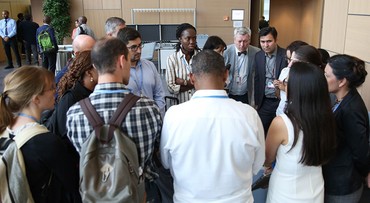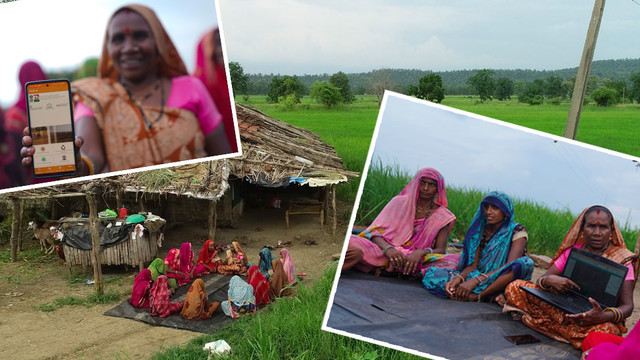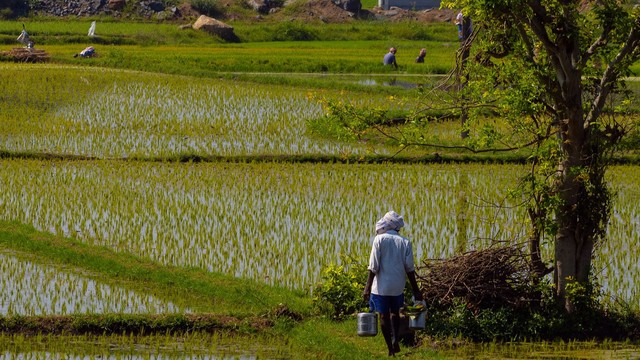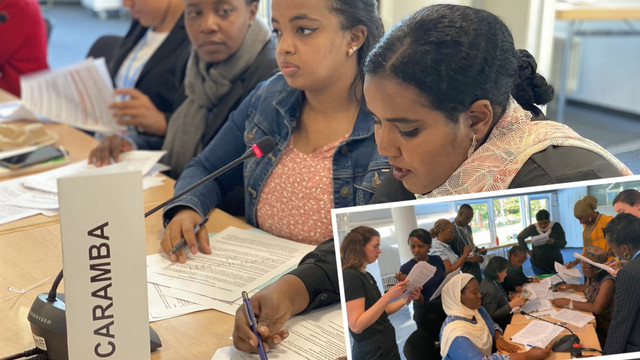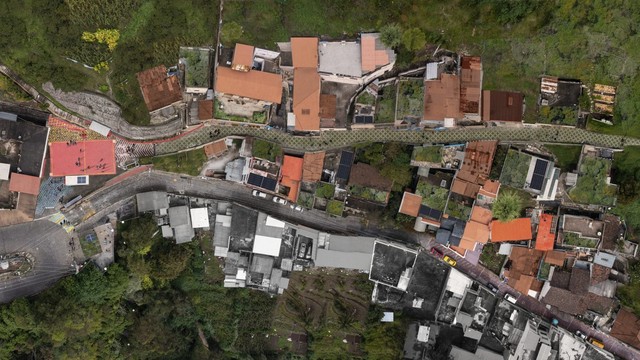Seven ways equity can promote success at the UN climate talks
For a new global climate agreement to be truly equitable — and get global buy-in — it must share the burden of adaptation as well as that of mitigation, says Achala C. Abeysinghe.

Next week representatives of nearly 200 nations will meet to advance negotiations towards a legally-binding global deal to tackle climate change, which they are due to sign in 2015. For any agreement to be reached, these negotiations under the UN Framework Convention to Climate Change (UNFCCC) must balance all of the issues that matter to different countries.
So far though, the prime immediate concern of the world’s poorest and most vulnerable nations – support as they strive to adapt to the impacts of climate change – has taken a back seat behind talks on how to mitigate climate change by reducing greenhouse gas emissions.
While it’s important the UN talks raise ambition to reduce those emissions, they must also tackle adaptation. The concept of equity offers a framework to fix this imbalance, because "sharing the burden" isn't just about reducing greenhouse gases, but also about working out how to fairly share the costs of adapting to climate change.
Equity: Redressing the balance
Though the UNFCCC does not define equity, the concept is prominent in its guiding principles and operational provisions – particularly in relation to assisting developing countries. Article 3 clearly establishes developed countries’ responsibility to take into account the special needs and circumstances of those countries particularly vulnerable to climate change impacts.
Article 4 goes on to state, “developed country Parties… shall assist developing country Parties that are particularly vulnerable to the adverse effects of climate change in meeting the costs of adaptation to those adverse effects”. It emphasises the need to take into account the specific needs and special situations of the Least Developed Countries (LDCs) when considering funding and technology transfer.
However, consensus around this general principle has not translated into actual obligations, particularly in relation to assisting developing countries. For example, the funds given to financing adaptation lag far behind those given to mitigation.
According to UNFCCC estimates, a significant share of the additional investment and financial flows will be needed for adaptation in developing countries. It estimates US$28–67 billion will be needed by 2030 [PDF]. Despite the obvious needs, since 2003, only 15 percent of climate finance approved for projects under the UNFCCC has gone to adaptation. From the recent US$30 billion ‘fast start’ financial resources, which were supposed to have a ‘balanced allocation between mitigation and adaptation’, less than 20 percent was allocated for adaptation. Out of US$5 billion required for implementing urgent and immediate adaptation priorities in 49 Least Developed Countries (as determined by the National Adaptation Programmes of Action or NAPAs) only around US$779.5 million has been pledged so far.
Equity and adaptation in the 2015 agreement
If the new agreement is to be acceptable to all countries and sustainable, it needs to start from a normative framework that has equity at its heart and covers all issues – including adaptation – in a holistic way. To ensure adaptation gets the attention it needs, this normative framework treat could be based on seven key elements, which I describe in more detail in this new briefing paper: justice, protection, sustainability, representation, responsibility, capability and accountability.
Seven urgently needed action points regarding adaptation arise from this framework:
- Conduct an initial assessment of costs and residual damages for different emissions scenarios. A clear assessment will ensure the future agreement meets the need for equity in delivering justice and protecting the most vulnerable.
- Introduce a system or formula to recognise how much funding is required for adaptation, and how it should be scaled up based on likely emission scenarios. This will help Parties understand that the less they mitigate now, the more funding for adaptation will be needed later, and that the cost of climate change is lower now than in the future. There must be adequate provisions for meeting the special needs and circumstances of the most vulnerable countries.
- Developed country parties must commit to providing sustainable, predictable, new and additional public finance for adaptation. There must be agreement on common criteria for what counts as public finance, including a common baseline against which finance should be considered ‘new and additional’. Innovative funding sources, such as market and other potential private sector opportunities for adaptation, should be considered. But, as Simon Anderson explains, private sector finance should not be prioritised over public sector financial commitments for adaptation.
- Common accounting rules and a strong compliance regime are needed to ensure finance commitments are delivered in a timely manner.
- A review mechanism must conduct regular reviews of whether commitments to tackling adaptation, particularly through financial support, are adequate, and must lead towards new commitments when existing commitments are insufficient.
- Any new agreement must make provision to address loss and damage in sectors and areas where adaptation to climate change is unlikely to be manageable, feasible or economical under likely climate scenarios. Parties must also establish an international mechanism to address loss and damage.
- Institutions already addressing adaptation must be strengthened and new institutions must be created if the existing institutions are insufficient.
The least developed countries and other vulnerable countries must adapt now to the impacts of climate change – their needs are immediate and likely to escalate. It is unfair that the world’s poorest countries shoulder this burden alone.
Even if all greenhouse gas emissions stopped today the impacts of climate change would be felt in the future because the greenhouse gases already emitted are likely to persist in the atmosphere for thousands of years. This problem is not going away, and can’t be ignored.
At the negotiations that begin next week in Warsaw the all nations must act to raise adaptation to its rightful place in the 2015 agreement. In doing so they could have a real shot at creating a climate deal that is effective, ambitious and gets everyone on board. If they don’t, the negotiations won’t represent the needs of the majority of countries, putting a global deal at risk.
Achala Abeysinghe is a senior researcher in IIED's climate change group.
